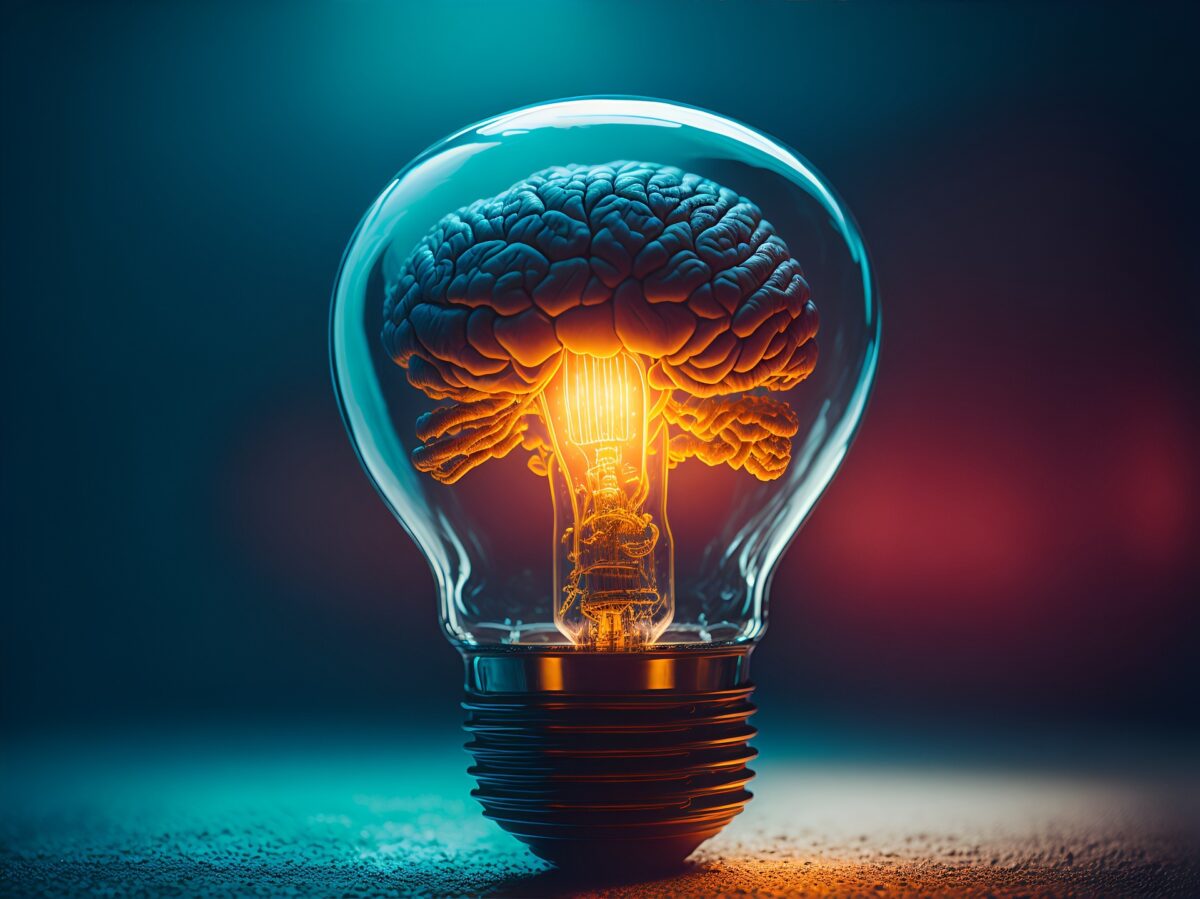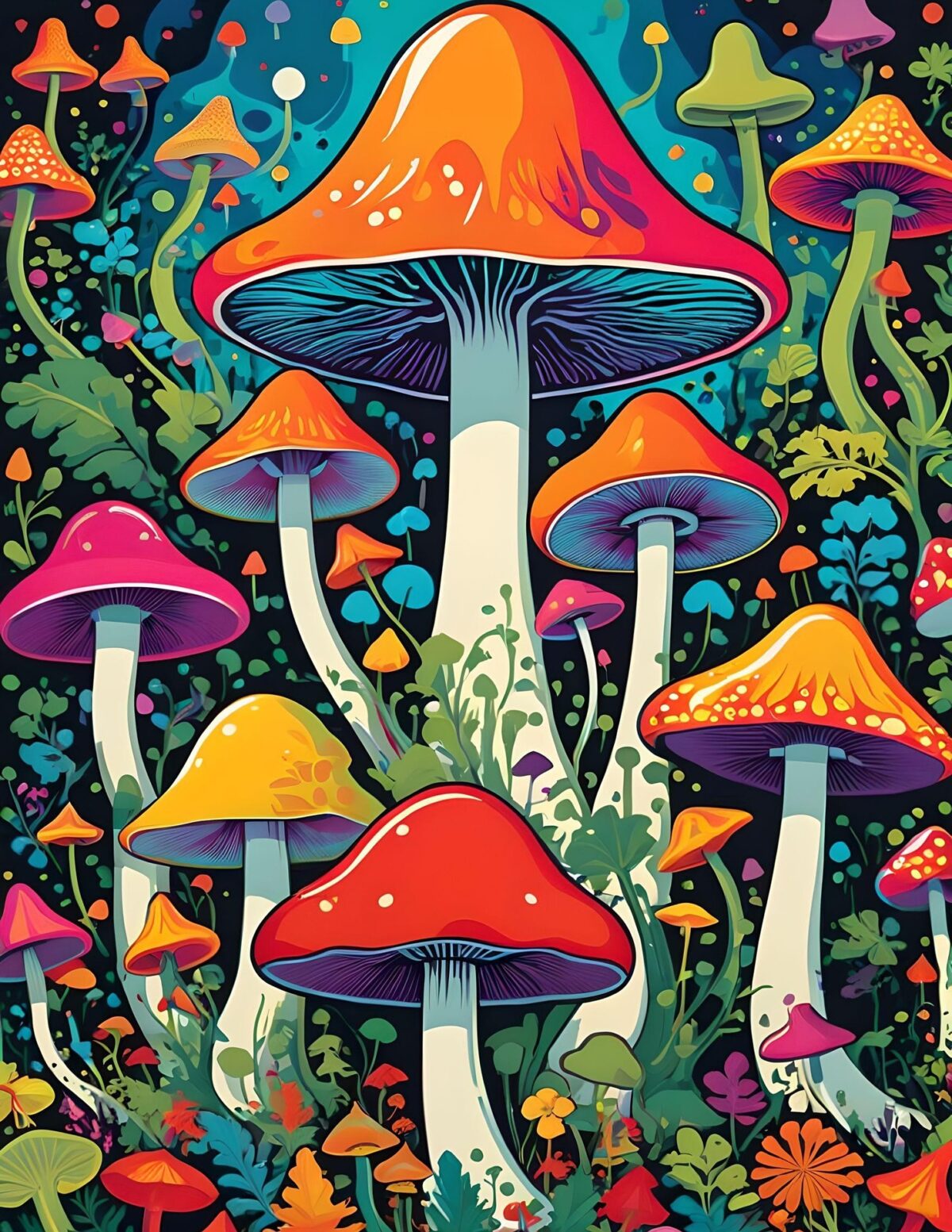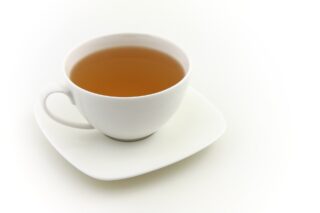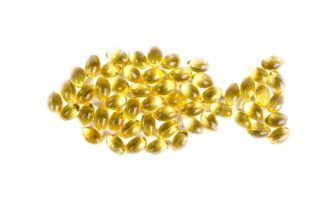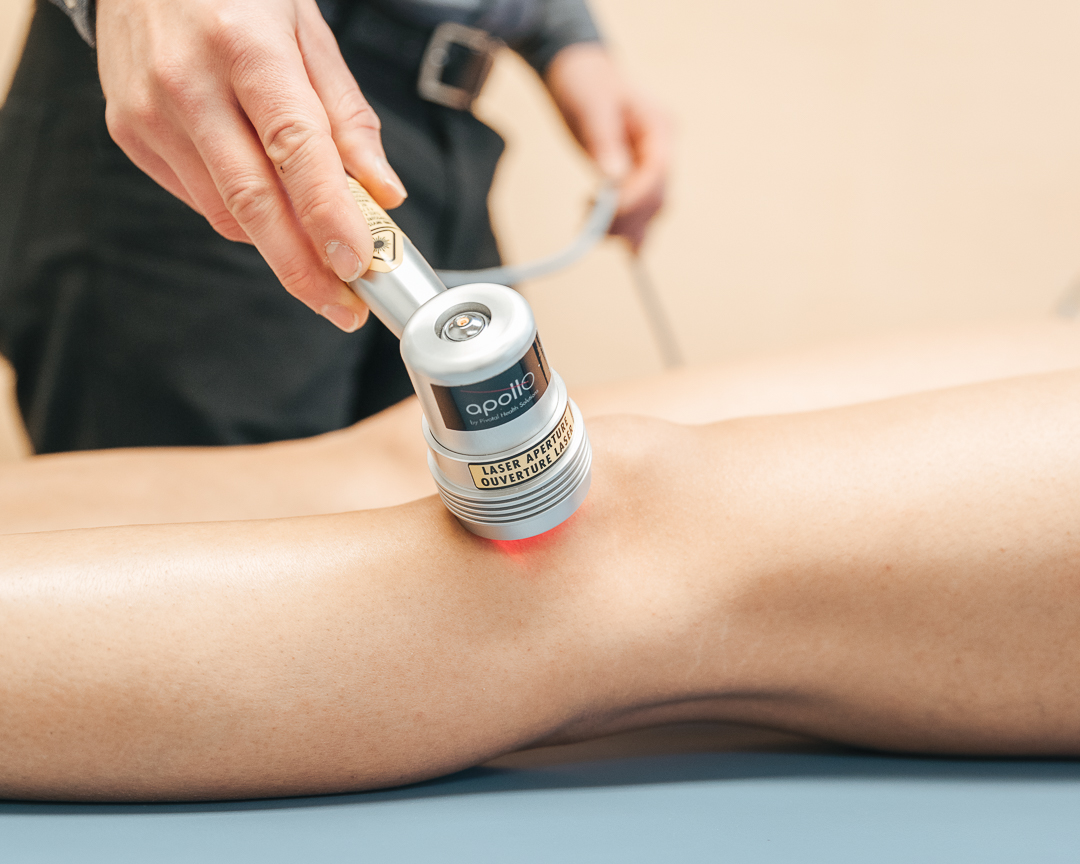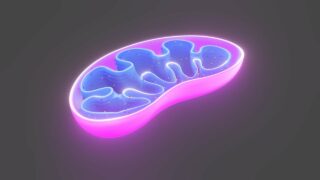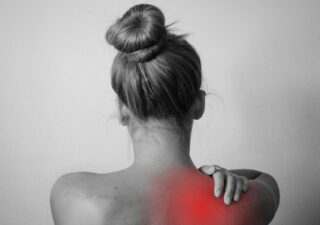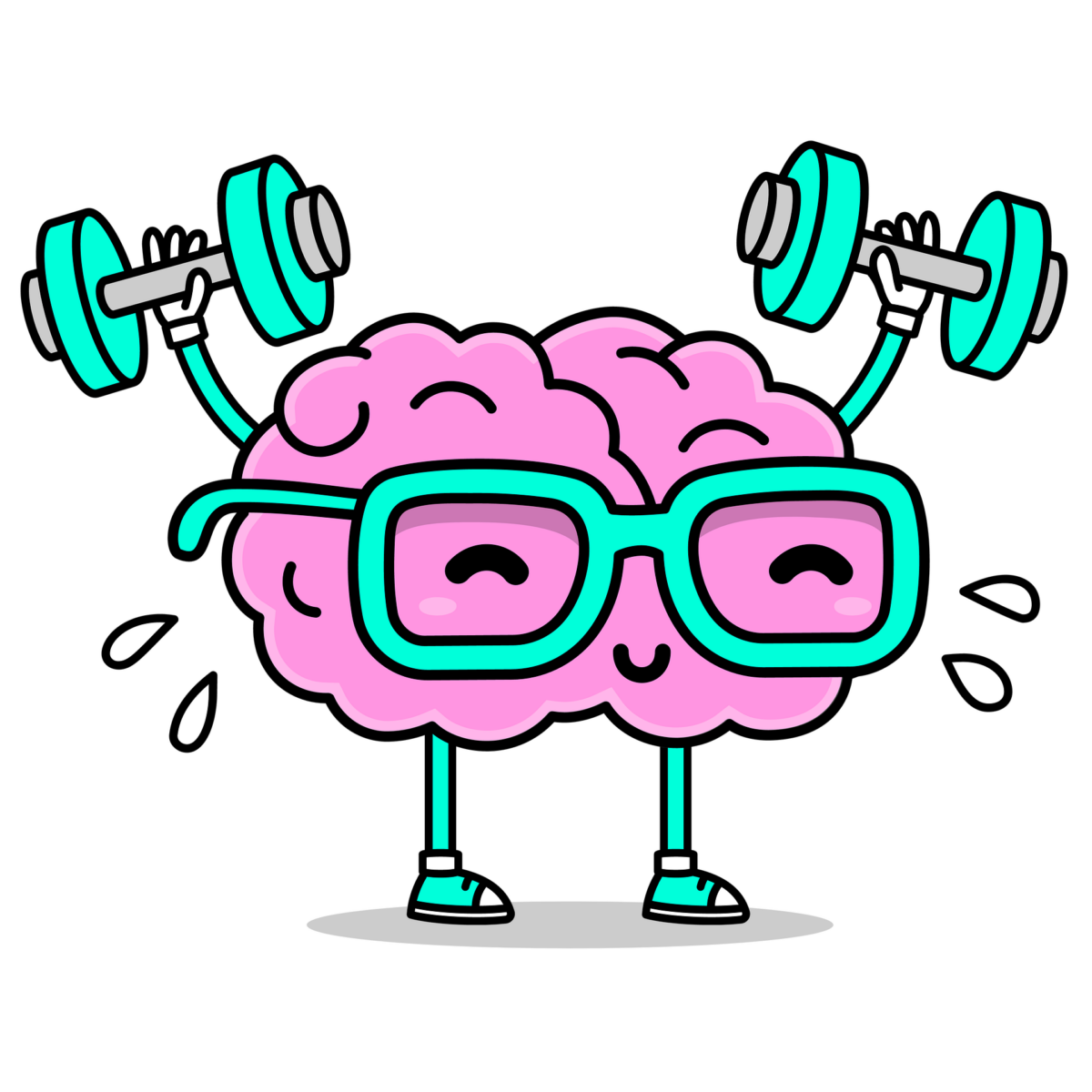A healthy body is necessary for a healthy mind, but often we forget that the reverse is also true. A healthy mind is the foundation for overall well-being. So it shouldn’t come as a surprise that maintaining a healthy brain is essential to living a fulfilling life. Much like our bodies, our brains need proper nutrition, exercise, and rest to function at their best. Supplementation can have a role in supporting a healthy brain routine. Here I have listed my top 10 supplements that you can incorporate into your routine for a healthier brain.
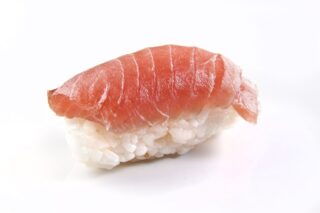
Omega-3 Fatty Acids
Omega-3 fatty acids, the unsung heroes of brain health, are stepping into the limelight. These essential fats, found in foods like fatty fish and flaxseeds, play a vital role in maintaining and improving brain function.
According to an intriguing study published in Cerebral Cortex, long-chain omega-3 fatty acids can improve brain function and structure in older adults, suggesting that these potent nutrients may be key to maintaining cognitive functions as we age.
But the benefits of omega-3 fatty acids go beyond just keeping our brains sharp. Research has shown that these powerful nutrients can help improve memory, attention, and even mood. Imagine being able to remember names, dates, and details with ease, or having laser-like focus when you’re working on a project. Even better, imagine feeling upbeat and positive, thanks to the mood-boosting benefits of omega-3s.
Not getting enough of these essential fats? The consequences could include cognitive decline and mood disorders. But don’t worry, it’s easy to get your daily dose of omega-3s. Foods rich in these fats include fatty fish like salmon and mackerel, flaxseeds, chia seeds, and walnuts. Incorporating these into your diet can be as simple as adding a sprinkle of chia seeds to your morning smoothie or enjoying a delicious salmon fillet for dinner. However, for those who may not get enough from their diet, supplements are a viable option. 2-4 grams of Omega-3 fatty acids is a good therapeutic dose.
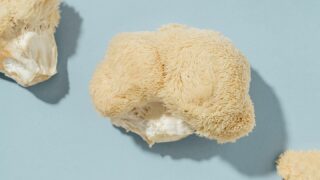
Lions Mane
Lions Mane mushroom, a unique variety of medicinal fungi, has been gaining attention in the health and wellness sector for its potential cognitive and mood-boosting benefits. This edible mushroom, which has a striking appearance reminiscent of a lion’s mane, is believed to possess potent anti-inflammatory and antioxidant properties, which may contribute to improved brain function.
Research into the cognitive benefits of Lions Mane mushroom is promising. Various studies have pointed towards its potential to stimulate the growth of new brain cells, a process known as neurogenesis. For instance, a study published in 2019 found that Lion’s Mane decreases inflammation, potentially helping to relieve depression and anxiety1. Another research article highlighted the mushroom’s ability to improve memory and boost brain cell growth.
The mushroom owes these benefits largely to two chemicals it contains: hericenones and erinacines. These compounds are believed to accelerate the growth of brain cells. Furthermore, the mushroom is often referred to as “the smart mushroom” due to its reported ability to enhance memory, focus, and clarity.
As for dosage, there isn’t a universal recommendation, as the ideal amount may vary based on several factors, including age, health status, and the specific reason for consumption. However, many supplement brands offer Lions Mane extract in capsule form, making it easy to incorporate this powerhouse mushroom into your wellness routine. 1-2 grams per day is a good therapeutic dose. For more information check out my article on Lions Mane.

Ginkgo Biloba
For centuries, the leaves of the Ginkgo biloba tree have been used in traditional medicine. Today, science is beginning to unlock the secrets behind this ancient remedy, revealing its potential to enhance cognitive health.
A number of clinical trials and studies have explored the effects of Ginkgo biloba on cognitive function, with promising results. One such study published by Frontiers in Pharmacology found that participants undergoing treatment with Ginkgo biloba extract showed improvements in cognitive function. This suggests that Ginkgo biloba may have the potential to enhance memory, focus, and mental clarity.
Ginkgo biloba contains high levels of flavonoids and terpenoids, antioxidants that provide a defense against damaging free radicals. By protecting our brain cells from oxidative stress, Ginkgo biloba helps maintain the health of our neurons, which are crucial for cognitive function.
A study published in the Journal of the American Medical Association revealed that Ginkgo biloba could potentially play a role in preventing dementia2. This highlights the supplement’s potential not just for enhancing cognitive function in the short-term, but also for maintaining cognitive health in the long run.
While the research is promising, it’s important to remember that supplements should be used responsibly. Based on the current scientific research, a dosage of 120 to 240 mg of Ginkgo biloba extract per day, divided into two or three doses, is considered safe and effective for cognitive health benefits. However, always consult your healthcare provider before starting any new supplement regime.
Adding Ginkbo biloba to your daily routine is simple. The extract is available in various forms, including capsules, tablets, and teas. Consider taking your Ginkgo biloba supplement in the morning with breakfast to kick-start your cognitive function for the day.
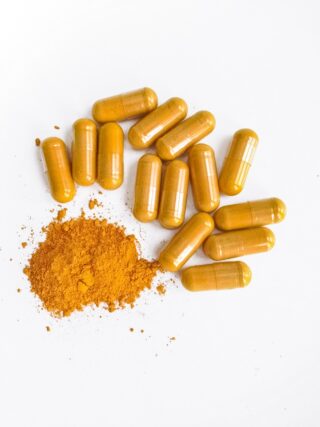
Curcumin
Curcumin has been a staple of traditional medicine for centuries, revered for its potent anti-inflammatory and antioxidant properties. But how does it benefit our brains?
A groundbreaking study published in the American Journal of Geriatric Psychiatry investigated the effects of curcumin on cognitive function in adults aged between 50 and 90. Participants who took 90 mg of curcumin twice daily showed significant improvements in memory and attention abilities, compared to those who received a placebo. This is promising evidence that curcumin could be a powerful ally in maintaining cognitive health as we age.
In addition to boosting memory and attention, curcumin also offers protective benefits for the brain. A study published in the journal Antioxidants found that curcumin’s antioxidant activity helps to combat oxidative stress, a key factor in cognitive decline. By neutralizing harmful free radicals, curcumin can help preserve neuron integrity and function.
But the advantages of curcumin extend beyond its antioxidant capabilities. It’s also a potent anti-inflammatory agent. Chronic inflammation has been linked to numerous cognitive disorders, including Alzheimer’s disease. Research published in the Journal of Alzheimer’s Disease found that curcumin could reduce markers of inflammation in the brain, potentially slowing the progression of these debilitating conditions.
So, how can you incorporate this golden spice into your daily routine? Curcumin supplements are a convenient and effective way to reap the cognitive benefits of this potent compound. While curcumin is safe for most people, it’s always wise to consult your healthcare provider before starting a new supplement regimen.
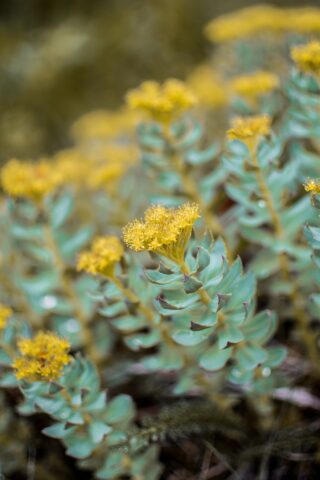
Rhodiola Rosea
Rhodiola Rosea, often referred to as Roseroot or Golden Root, is a plant native to the cold regions of Europe and Asia. It has been used for centuries in traditional medicine, particularly in Russia and Scandinavian countries, for its adaptogenic properties – its ability to help the body adapt to stress. But today, we’re diving deep into another exciting facet of this plant: its cognitive benefits.
A number of clinical trials and studies have explored the effects of Rhodiola Rosea on cognitive function, revealing promising results. A study published in the International Journal of Sports Nutrition and Exercise Metabolism suggested that Rhodiola Rosea ingestion could potentially improve cognitive function. This suggests that Rhodiola Rosea may have the potential to enhance memory, focus, and mental clarity.
In addition to boosting cognitive performance, Rhodiola Rosea is also known for its dual action of cognitive stimulation and emotional calming, which creates benefits for both immediate cognitive and memory performance and the long-term preservation of brain functions. This means that not only can it give your brain a quick boost, but it may also help maintain its health over time.
Moreover, a research article published in Phytotherapy Research assessed the effects of Rhodiola Rosea on cognitive function, stress, anxiety, and other mood symptoms. The study concluded that Rhodiola Rosea appears to have an adequate safety and tolerability profile, with a positive benefit-risk ratio.
So, how can you incorporate this powerful herb into your daily routine? Rhodiola Rosea is available in various forms, including capsules, tablets, and teas. However, always consult your healthcare provider before starting any new supplement regime. Based on current scientific research, a dosage of 200-600mg per day is considered safe and effective for cognitive health benefits.
Vitamin B Complex
B-complex vitamins, which include eight water-soluble vitamins: B1 (thiamine), B2 (riboflavin), B3 (niacin), B5 (pantothenic acid), B6 (pyridoxine), B7 (biotin), B9 (folate), and B12 (cobalamin), work together to support brain function.
Research suggests that B-complex vitamins can have a significant impact on cognitive health. A study published in the International Journal of Sports Nutrition and Exercise Metabolism found potential mental benefits from supplementation with a high-dose, B-complex multivitamin/mineral supplement.
Another study published in Phytotherapy Research found that a formula of methylated B-complex vitamins showed modest improvements in mood and mental health. This suggests that B-complex vitamins may help reduce stress, improve mood, and ultimately enhance cognitive function.
Moreover, a study in the Journal of Alzheimer’s Disease highlighted the potential role of B-complex vitamins in preventing cognitive disorders. The research indicated that B vitamins play central roles in the metabolism of neurotransmitters, which are crucial for cognitive function.
So, how can you incorporate these brain-boosting vitamins into your daily routine? While B-complex vitamins are available in supplement form, they can also be found in a variety of foods. These include whole grains, beans, peas, nuts, eggs, dairy products, meat, and leafy greens.
When it comes to dosage, it’s always best to consult with a healthcare provider. However, a typical supplemental dose ranges from 1-25 mg per day for each of the B vitamins, according to the National Institutes of Health.
Magnesium
Recent research underscores the importance of magnesium for brain health. A study published in the Journal of Alzheimer’s Disease found that a higher intake of magnesium is associated with a reduced risk of cognitive impairment.
Magnesium is involved in over 300 biochemical reactions in our bodies, including several that pertain to brain function. It aids in transmitting nerve signals and promotes the plasticity of synapses, which are critical for learning and memory.
Moreover, magnesium is vital for maintaining the health of our neurons. A deficiency in this mineral can lead to neuronal damage, which could potentially lead to memory issues and other cognitive impairments.
The recommended daily allowance (RDA) for magnesium varies by age and sex, but general guidelines suggest an intake of 310-420 mg for adults. While it’s possible to get sufficient magnesium through a balanced diet, supplementation can be beneficial for those who aren’t meeting their needs through food alone.
Phosphatidylserine
Phosphatidylserine is particularly abundant in the brain, where it participates directly in key signaling pathways. It supports the formation of short- and long-term memory, the ability to create new memories, and the ability to learn and recall information.
Recent research underscores the importance of phosphatidylserine for cognitive health. A study published in the Journal of Alzheimer’s Disease suggested that dietary supplementation of phosphatidylserine could improve brain function. This compound also stimulates the release of dopamine, a mood regulator, and increases the production of acetylcholine, necessary for learning and memory.
So, how can you incorporate this brain-boosting nutrient into your life? Phosphatidylserine supplements are available over the counter in capsule or powder form. While the dosage can vary depending on individual needs, a common recommendation is 100 mg three times a day. Always consult with a healthcare provider before starting any new supplement regimen.
In addition to supplementation, phosphatidylserine can also be found in certain foods, including soy, white beans, egg yolks, chicken liver, and beef liver. Incorporating these foods into your daily diet can provide additional support for cognitive health.
Creatine
Creatine, a compound naturally produced in our bodies and found in dietary sources like meat and fish, is often associated with muscle growth and energy production. However, recent research suggests it also plays a significant role in cognitive health.
A study published in Psychopharmacology found that creatine supplementation had a significant positive effect on both working memory and intelligence, both tasks that require speed of processing. This indicates that creatine can enhance cognitive function, making it a valuable supplement for those looking to boost their mental prowess.
But how much creatine should you take? While the optimal dosage can vary based on individual needs and health status, a common recommendation for cognitive health benefits is 5 grams per day. It’s important to note that while creatine is generally safe for long-term use, it’s always best to consult your healthcare provider before starting any new supplement regimen.
Furthermore, creatine supplements are most effective when taken consistently. Some people may experience mild side effects such as stomach discomfort or muscle cramps. These can often be mitigated by taking the supplement with a meal or spreading the dosage throughout the day.
Incorporating creatine into your routine could be as simple as mixing a scoop of creatine powder into your morning smoothie or post-workout shake. Remember, consistency is key when it comes to reaping the cognitive benefits of this powerful supplement. For more information check out my article on Creatine.
Vitamin D
Vitamin D, often referred to as the “sunshine vitamin,” plays a fundamental role in our brain health. But how exactly does this nutrient support our cognitive function?
Vitamin D aids in the function of neuronal and glial tissues, which are essential components of our nervous system. Furthermore, it has been shown to influence the synthesis of neurotrophins, growth factors that aid neuron survival and function, contributing to cognitive preservation.
However, maintaining adequate levels of vitamin D is crucial. A study published in the Proceedings of the Nutrition Society found that low levels of vitamin D were associated with cognitive impairment. This indicates that insufficient intake or absorption of vitamin D may negatively impact cognitive function.
The good news is, vitamin D supplementation could offer a solution. Research has suggested that maintaining optimal levels of vitamin D could help in preventing cognitive decline. A systematic review published in Aging Research Reviews found that vitamin D supplementation had a significant positive effect on cognition, particularly in individuals with low vitamin D levels.
So, what’s the recommended dosage? While individual needs can vary based on factors like age, sex, and geographical location, a general guideline suggests an intake of 600-800 IU (15-20 mcg) per day for adults, according to the National Institutes of Health. It’s important to consult with a healthcare provider before starting any new supplement regimen. For more information check out this article on Vitamin D.
No matter what age we are, it is essential to take care of our brains. Using supplements can be a safe and effective way to support brain function and maintain its health. However, supplements should not replace a well-balanced diet or prescribed medication. Remember to consult your healthcare provider before starting any supplement. So, grab your supplements and let’s keep our brains healthy for a better tomorrow!



